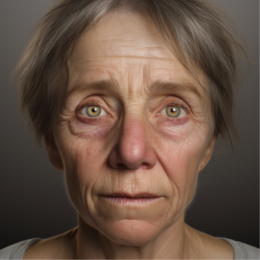10 Ways to Help Seniors Deal With Isolation And Depression

Depression among seniors is a pressing issue, affecting approximately 7 million adults aged 65 and older in the United States (CDC, 2021). It is a common but serious mood disorder that influences how one feels, thinks, and acts.
Statistics:
- Notably, older adults account for over 18% of suicide deaths in America, underlying the severity of untreated depression (CDC, 2021).
- Isolation, aggravated by the recent social distancing measures due to the COVID-19 pandemic, led to a 34% increase in reports of loneliness among seniors (Kaiser Family Foundation, 2021).
If you’re wondering, “What is depression, and how can we help our seniors cope?” read on.
Encourage a Sense of Purpose
The purpose is a vital component of mental health. Providing seniors with a sense of purpose can have a significant positive impact. Seniors find purpose through volunteering, participating in local community activities, or picking up hobbies that inspire them.
Statistics:
- Research shows that seniors who engage in meaningful activities, such as volunteering, have a 20% lower risk of death and report less depression (National Institute on Aging, 2023). These activities can include local community participation or cultivating a hobby, offering an invaluable sense of purpose.
Support Social Interactions
Isolation can intensify feelings of depression. Encourage seniors to maintain connections with family and friends, whether it’s through phone calls, video chats, or even traditional letters. In-person visits, when safe and possible, are also essential for emotional health.
Statistics:
- Isolation can exacerbate feelings of depression, leading to a 50% increased risk of dementia, a 32% increased risk of stroke, and a nearly fourfold increased risk of death (National Institute on Aging, 2023). It’s crucial to maintain connections with family and friends, whether it’s through regular phone calls, video chats, or even traditional letters.
Address Sleeping Problems
Insomnia is a common symptom of depression. Sleep can affect mood, memory, and overall health (National Sleep Foundation, 2021). Ensure seniors maintain a consistent sleep schedule, limit caffeine intake, and create a comfortable sleep environment. Consultation with a healthcare provider may be necessary for persistent sleep issues.

Show Them They Are Loved
Knowing they are loved and valued can greatly impact seniors dealing with depression. Regular check-ins, thoughtful gestures, and words of affirmation can remind them of their worth and help combat feelings of loneliness and isolation.
Get Professional Help If Needed
When asking, “What is depression?” remember it’s a medical condition. As with any health issue, it may require professional intervention. Licensed therapists, social workers, and psychiatrists can provide valuable mental health support for seniors. Cognitive-behavioral therapy and other types of counseling have proven effective in treating senior depression (American Psychiatric Association, 2021).
Consider Care at Home
In-home care services can help alleviate feelings of isolation and depression by providing companionship, assistance with daily activities, and emotional support. According to the National Institute on Aging (2021), care at home can improve the quality of life and reduce symptoms of depression among seniors.
Watch Their Medication
Certain medications can exacerbate symptoms of depression. Regularly reviewing medication lists with healthcare providers can ensure that any side effects are well-managed and are not contributing to depression.
Give Them a Task to Do
Feeling useful and productive can significantly improve seniors’ mental health. Small tasks around the house or involvement in family decision-making can foster a sense of self-efficacy and purpose.
Make Sure They Eat Well
Nutrition plays a critical role in mental health. Encourage seniors to eat balanced meals rich in fruits, vegetables, lean protein, and whole grains. Avoiding excessive alcohol and caffeine can also contribute to better mood regulation.
Encourage Physical Activity
Physical activity is a powerful depression combatant. Regular, mild exercise, such as walking or swimming, can improve mood, sleep quality, and overall well-being (National Institute on Aging, 2021).
Statistics:
- Seniors who exercise regularly experience a 20-30% reduction in depressive symptoms (National Institute on Aging, 2021). Even mild exercise, such as walking or swimming, can significantly improve mood, sleep quality, and overall well-being.
Conclusion
Depression is a common but serious issue among seniors, especially those experiencing isolation. However, through concerted efforts from family, friends, and healthcare providers, we can help seniors navigate these challenging feelings and foster an environment conducive to their mental well-being.
References
- American Psychiatric Association. (2021). Depression in Older Adults.
- Centers for Disease Control and Prevention. (2021). Depression is Not a Normal Part of Growing Older.
- National Institute on Aging. (2021). Home Care Services.
- National Institute on Aging. (2021). Exercise and Physical Activity.
- National Sleep Foundation. (2021). Sleep and Aging.





